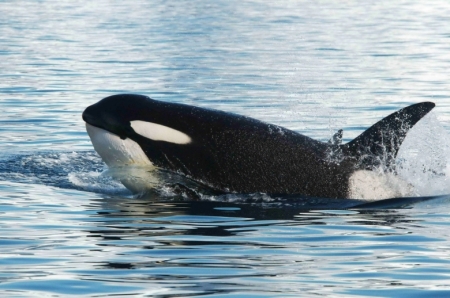World's Oldest Killer Whale Presumed Dead; 'Granny' Was Over 100 Years Old
The world's oldest killer whale – J2, affectionately known as "Granny" – is missing and presumed dead.

The female orca, estimated to be more than a 100 years old, was last seen on October 12, 2016 as she swam north in the Salish Sea - close to Vancouver and Seattle, BBC News reported.
J2, and her pod of orcas, were the focal point of a BBC Documentary in which biologists studied female killer whales' menopause. Orcas, along with humans and short-finned pilot whales, are the only species of mammals who experience menopause.
These orcas have been the subject of a 40-year-long study from the Center for Whale Research (CWR) in Friday Harbor, Wash. The researchers involved in the study gleaned important data about the importance of female orcas in the group's hierarchy.
It was discovered that matriarch killer whales act as guides to the pod, take care of other female's young calves and even feed the larger males. Biologists hypothesize that the vital role played by these post-reproductive female leaders could explain why the females of species cease to reproduce halfway through their lives.
Granny, who far surpassed the life expectancy of orcas which caps at 60 years, was the most famous member of the world's most well-studied orca population, named Southern Resident killer whales.
"It was inevitable that this day was going to come but it is very sad news and a further blow to this population," Prof. Darren Croft from the University of Exeter, UK, who leads the research, told BBC News.
Granny was first photographed by Ken Balcomb, a scientist at the CWR, in 1976. He was also the last person to see the famous killer whale -- swimming north in the Haro Strait on Oct.12 -- before her disappearance, reports NY Post.
Prof. Croft, another researcher at CWR, marveled at Granny's longevity and the varying environments she had survived in during her existence.
"She lived through the live captures," he said, adding "in recent years her world has changed dramatically with dwindling salmon stocks and increases in shipping threatening the survival of this incredible population."
Beleaguered by dwindling food sources and limited safe havens, the number of Southern Resident killer whales is down to 78 after Granny's presumed death as of the end of 2016.





















